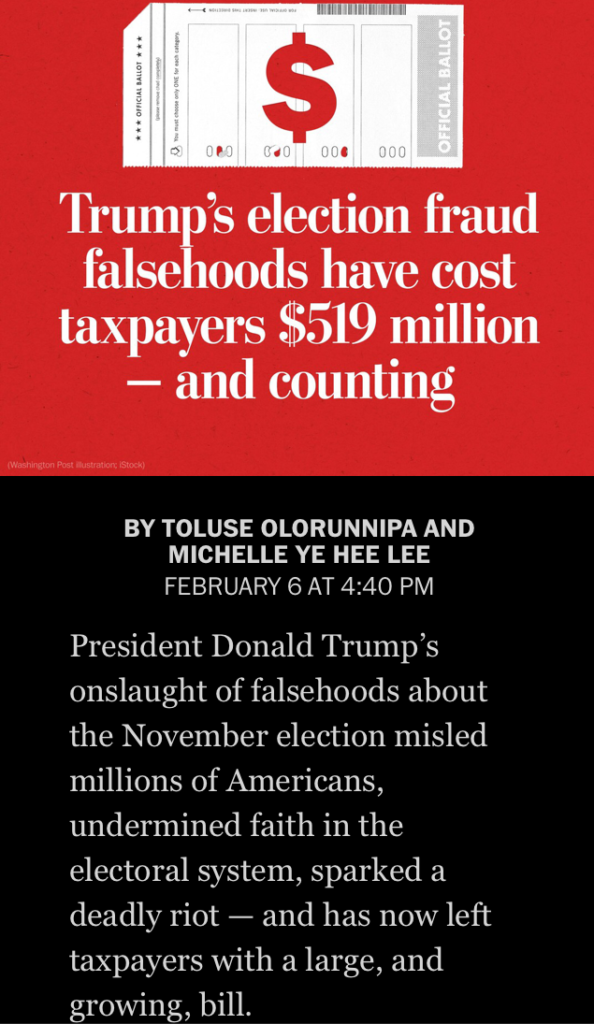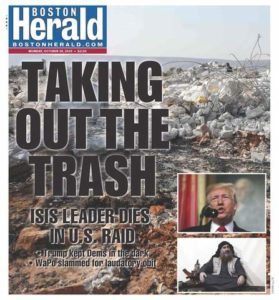Lately I have been avoiding consuming news as much as I can. Things have reached a point where I can no longer watch news shows or read news articles without becoming angry at the biased word choices of the so-called journalists. What is supposed to be the neutral providing of information has turned into editorializing and opinion. The below article from the Washington Post epitomizes what is wrong with the media. I read only the headline and the first sentence of the article, and there are almost too many false and biased things to count:

First of all, news outlets should not describe Trump’s claims as “falsehoods.” They should remain neutral on the truth or falsity of Trump’s statements and allow readers to form their own conclusions. Second, describing Trump’s claims as an “onslaught” is opinion, not factual. Third, Trump’s claims did not necessarily mislead any Americans, let alone millions, because as I already stated, it is up to readers to form their own conclusions about the truth or falsity of the claims. Fourth, undermining faith in the electoral system is not necessarily a bad thing, because if Trump’s claims are actually correct, and there are problems with the integrity of the electoral system, then it is good for people to question this system instead of having blind faith in it. To characterize undermining faith in the electoral system as inherently bad presumes the truth of what the authors are (wrongly, because their job is to be neutral) trying to prove: namely that Trump’s claims of election fraud are false. Fifth, what happened at the Capitol on January 6th was a protest, not a riot. And sixth, it was not really the protest that was deadly; it was the police response to it. Out of the five people who died for reasons related to that protest, one was a cop who was allegedly killed by a protestor, one was a cop who committed suicide, two were protesters who suffered medical emergencies, and one was a protestor who was deliberately killed by cops.
So yeah, other than that, this article is totally appropriate and makes perfect sense… NOT! The individuals who wrote it and the editor(s) who allowed it to be published should be ashamed of themselves. And, as a side note, it’s awfully ironic that a news outlet so biased towards the left, and the accompanying tendency to spend as much money as possible on unnecessary government programs, is suddenly concerned about taxpayers’ money.

